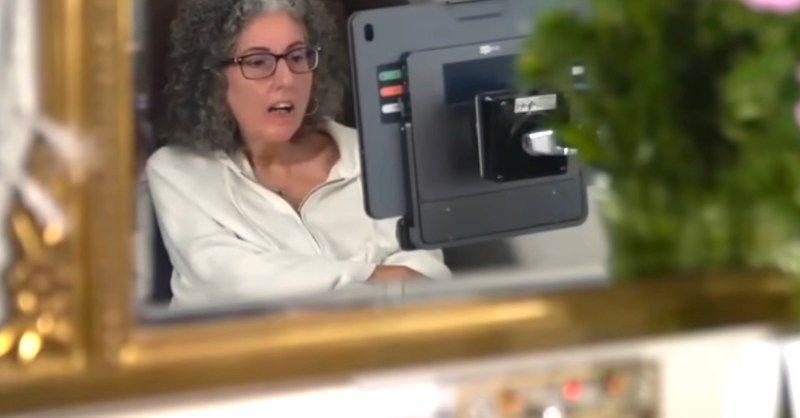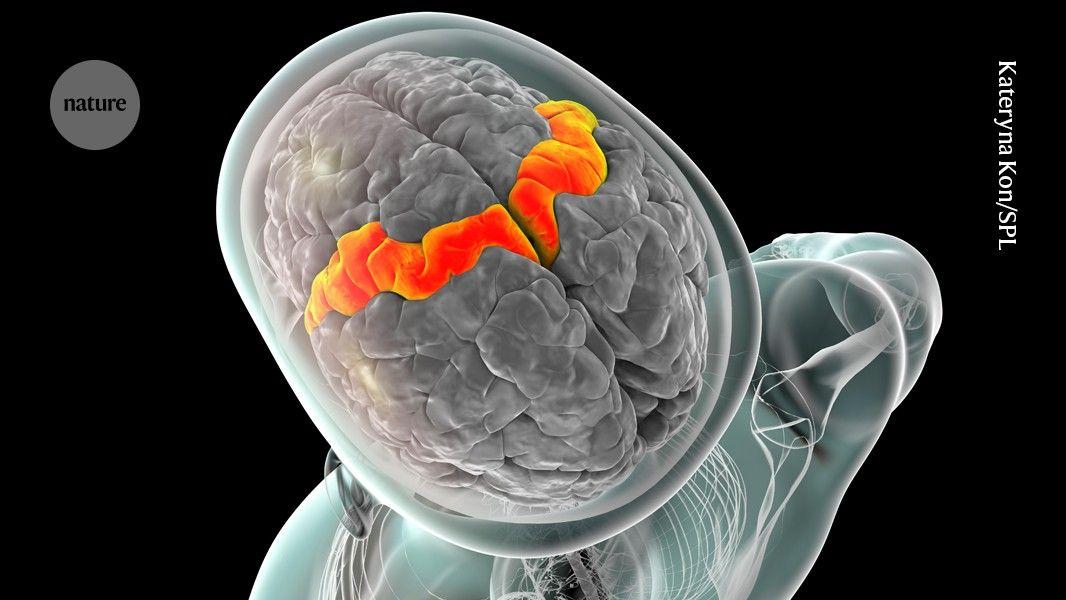AI Restores Woman's Voice After 25 Years of Silence
2 Sources
2 Sources
[1]
AI combines with old tech to give a woman her voice back
Thanks to AI technology, Sarah Ezekiel can now speak with the voice that she lost 25 years ago after developing motor neurone disease. Brit Sarah Ezekiel lost her voice after developing motor neurone disease (MND) 25 years ago and ever since has been speaking with what she described as a "posh robot's voice." MND is a progressive neurological condition that damages the nerves controlling muscles, leading to weakness and eventual paralysis. After about five years with the disease, Sarah was able to use eye-gaze technology that allowed her to type and speak with a synthetic voice, similar to the late physicist Stephen Hawking, the BBC reported. Recommended Videos While the artificial voice allowed her to continue to communicate through speech, Sarah said she never really liked the sound of it, and wished she could communicate with her now-adult children using her real voice. Enter a U.K.-based tech firm called Smartbox, which said recently that it might be able to help her so long as there was an audio recording of Sarah's real voice that it could work with. The family found an old VHS tape with footage of Sarah, but the audio of her speaking only lasted eight seconds and was obscured by background noise. Working with various AI technologies that included ElevenLabs' Voice Isolator, Smartbox's Simon Poole was able to clone Sarah's voice and incorporate it into her speech software. You can hear the impressive result in this BBC News report. Hearing her speak with her real voice for the first time, daughter Ava told the BBC: "It was amazing. I'm still coming to terms with it. Hearing it now in everyday life, it still surprises me." She added: "We can feel who she is as a person -- mum isn't just a disabled person in the corner with a robot that doesn't relate to her." Sarah's story shows how the latest technology can not only restore someone's speech, but also, by enabling them to speak in their own -- albeit synthetic -- voice, help them reclaim their identity and reconnect emotionally with loved ones. "After such a long time, I couldn't really remember my voice," Sarah said. "When I first heard it again, I felt like crying. It's a kind of miracle."
[2]
Woman who suffers from motor neuron disease finds her voice after...
An MND sufferer who spoke like a 'robot' for years can now use her own voice - thanks to an old VHS clip of her changing her baby's nappy. Sarah Ezekiel was left without a voice or use of her hands, aged just 34, due to the onset of motor neurone disease in 2000. Her two children, Aviva, 28, and Eric, 25, grew up only ever able to speak to her through a machine - in a generic and robotic tone. But 25 years later, after finding an eight-second scratchy VHS clip of her speaking while changing Aviva's nappy in the 1990s, AI technology has been able to give Sarah back her original voice. And her children say they now feel truly connected to her after hearing her true 'cockney accent' for the first time. Sarah, 59, of Hendon, London, said: "I love having my voice back. I almost cried when I first heard it. It was a very emotional experience. "I lived in an offline wilderness. The hardest part with living with MND has been losing my speech. I felt like I had lost my identity. "When I was asked if I had any recordings of my voice before MND, I sent a video where I say one line with people talking in the background. I wasn't hopeful at all." The video clip, which was of very poor quality, was sent to Smartbox, a Bristol-based technology company, which began working on trying to create something that could replicate Sarah's original voice. Through the use of AI technology, they were eventually able to isolate the voice and clone it. As a result, Sarah is now able to say whatever she wants through her device using her own voice. She added, "I am so happy to have my identity back, thanks to Smartbox and AI. "I think it is great to have a voice that sounds like me and not a robot. My kids couldn't remember my voice at all, as they were so young. "It is wonderful for them to hear the real me." Sarah was diagnosed with MND in April 2000, just months before her second child, Eric, was born. She added: "After Eric was born, my symptoms progressed rapidly and soon I was unable to use my hands, my marriage collapsed, and I needed care for myself and children. "I lived in an offline wilderness until I got my first assisted technology, and that is when my life started again." Sarah said she started to truly reconnect with the world again when using eye-gaze technology in 2010, and she rediscovered her passion for art through it two years later. She added, "I always tell people with good technology and support, anything and everything is possible. I am excited about the future and what lies ahead." Sarah's daughter Aviva said hearing her mother's true voice had made her feel a lot more connected to her. She said: "It has been amazing, really special and emotional, and a lot to process. "A voice is such a personal part of someone you take for granted. It is amazing to be able to hear her as herself - and not as a robot. "Her personality and roots are tied up in her accent, and it's definitely helped me feel more connected to her - to be able to hear herself in her own voice. "I realise I want to listen to her more when it is in human voice. "This video clip had been hidden away. I'd not seen it before. "The first time I heard it was when she said this is what they are going to use. "It is just a video of her changing my nappy. We've since found more videos, which is great. You can hear her cockney accent coming through - I'd never put two and two together like that. It is just fantastic." Her son Eric added, "It really does sound like her, and that has been so exciting for mom and myself. It has just changed the way she communicates. "It is a lot more expressive, a lot clearer about how she is feeling. Whether she is annoyed, excited or telling me to do things, it just comes across more how she is feeling." Simon Poole from Smartbox says he had asked for an hour's worth of audio and recalls how his heart initially sank when he received only eight seconds from a VHS tape. He added, "I thought there's no way we're going to be able to create a voice using audio that bad." He started the process by looping it through the latest technology from an international AI-voice company called ElevenLabs. Eventually, Simon said he managed to set Sarah's voice apart from the television. He then used another app where AI had been trained to fill in gaps left by the isolator and to predict where a voice, like Sarah's, might go with its intonation. Eventually, Simon ended up with several audio phrases he was happy with - and sent them to Sarah who 'couldn't believe' how realistic it sounded. Smartbox was formed in Bristol with the aim of building a world where "no one is left without a voice." On its website, it states: "Our technology exists to give people a voice and independence, so they can build meaningful connections and can achieve their ambitions."
Share
Share
Copy Link
Sarah Ezekiel, who lost her voice to motor neurone disease 25 years ago, regains her original voice through AI technology, transforming her ability to communicate with her family.
A Voice Restored: Sarah Ezekiel's Journey
Sarah Ezekiel, a 59-year-old woman from London, has regained her voice after 25 years of silence due to motor neurone disease (MND). Thanks to cutting-edge AI technology, Sarah can now communicate using her original voice, marking a significant breakthrough in assistive technology and emotional reconnection
1
2
.
Source: Digital Trends
The Silent Years
Diagnosed with MND in 2000 at the age of 34, Sarah lost her ability to speak and use her hands. For years, she communicated through a machine with a "posh robot's voice," which she never truly liked. Her children, Aviva (28) and Eric (25), grew up hearing only this synthetic voice from their mother
2
.AI to the Rescue
The turning point came when Smartbox, a Bristol-based technology company, offered to help Sarah regain her voice. The challenge was significant – they only had an eight-second audio clip from an old VHS tape of Sarah changing her daughter's nappy in the 1990s
1
2
.Technological Innovation
Simon Poole from Smartbox led the effort to recreate Sarah's voice:
- Used ElevenLabs' Voice Isolator to separate Sarah's voice from background noise
- Employed AI trained to fill in gaps and predict voice intonation
- Created several audio phrases that closely matched Sarah's original voice
1
2
The Emotional Impact

Source: New York Post
The restoration of Sarah's voice has had a profound effect on her family:
- Sarah: "When I first heard it again, I felt like crying. It's a kind of miracle."
1
- Aviva (daughter): "It has been amazing, really special and emotional, and a lot to process... It's definitely helped me feel more connected to her."
2
- Eric (son): "It really does sound like her... It is a lot more expressive, a lot clearer about how she is feeling."
2
Related Stories
Beyond Communication
This technological breakthrough goes beyond mere communication. It has helped Sarah reclaim her identity and reconnect emotionally with her loved ones. Her daughter Ava remarked, "We can feel who she is as a person -- mum isn't just a disabled person in the corner with a robot that doesn't relate to her."
1
The Future of Assistive Technology
Sarah's story highlights the potential of AI in assistive technology. It demonstrates how combining old and new technologies can have life-changing impacts. As Sarah puts it, "I always tell people with good technology and support, anything and everything is possible. I am excited about the future and what lies ahead."
2
This breakthrough opens up possibilities for others with similar conditions, offering hope for improved quality of life and emotional connections with loved ones.
References
Summarized by
Navi
[1]
[2]
Related Stories
Recent Highlights
1
ByteDance's Seedance 2.0 AI video generator triggers copyright infringement battle with Hollywood
Policy and Regulation

2
Demis Hassabis predicts AGI in 5-8 years, sees new golden era transforming medicine and science
Technology

3
Nvidia and Meta forge massive chip deal as computing power demands reshape AI infrastructure
Technology








